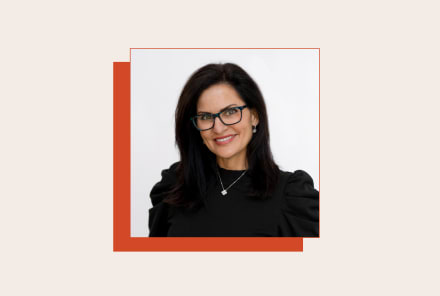Advertisement

Every day in the news, we see health stories that evoke confusion, fear, and self-doubt. One day, a particular food is the best thing for you — and the next we're instructed to run away from it while screaming and shielding our children.
As a holistic nutritionist, I receive a constant stream of questions from my clients, students, and online community about something they've read or heard. They're not sure how to discern which health fears are founded on evidence — and which ones need to be banished.
To help, I'm sharing some of the most common health tips I've heard that I think are worth questioning:
1. "Stay out of the sun and always use sunscreen."
We’ve long been told that we should avoid the sun and slather ourselves in sunblock when we're exposed to its "death rays."
But some sun is incredibly important to our overall health. It’s our primary source of vitamin D, which is crucial to bone health, the immune system, and hormone production. Although vitamin D is found in small amounts in some foods, 80 to 90 percent of our supply comes from being exposed to the sun’s rays.
That means wearing a film of sunscreen can block that crucial absorption from happening. And don’t even get me started on sunscreen itself, what with its toxic chemicals.
Want to enjoy the sun and protect your skin? Covering up well, getting sunshine during off-peak hours, eating sun-protective foods, and whipping up a batch of homemade natural sunscreen are all simple, natural, and effective sun protection strategies.
2. "Too much kale is bad for you."
Kale experienced a swift rise as a superfood. But then as soon as people started to like it, they were slammed with the news that kale can be "poisonous" to thyroid health and cause heavy metal toxicity.
In theory, large quantities of cruciferous vegetables could affect the thyroid. However, you’d have to ingest massive amounts, like juicing several heads of kale a day. Binge eating any food isn’t good for us. You can die from drinking too much water. Does that mean we should all switch to Coke? I think not.
The reality is that when it comes to thyroid health, there are far more important things to worry about than kale consumption. For example, drinking fluoridated water might be more harmful because it displaces iodine, an essential mineral to the thyroid. And the health benefits of kale and other cruciferous vegetables far outweigh any potential risk.
As for heavy metal warnings, choose organic kale to reduce your exposure. For overall health, it’s helpful to rotate kale with other greens. But that doesn’t mean we need to eliminate it entirely.
3. "Avoid saturated fat because it causes heart disease."
We spent the last few decades terrified that fat would make us fat and lead to cardiovascular disease. This led to the low-fat and fat-free food craze — which really just replaced fat with sugar and refined carbohydrates.
We’ve now learned that we had it wrong: sugary foods and refined carbs increase our risk of heart disease, while a recent meta-analysis concluded that the nutritional warnings we had received about fats decades ago was unfounded.
In fact, good fats contain a multitude of health benefits, including nourishing the brain and liver and improving our mood. It’s the source of fat that is key: Choose clean, organic sources from either animals or plants to reap the health rewards.
4. "We need dairy for strong bones."
Marketers have been successful at convincing us that dairy is this massively important thing that we must have tons of, or else we'll get all sorts of nutrient deficiencies and diseases.
The truth is, you don't necessarily need milk or cheese or yogurt to have strong bones. Here in North America, dairy consumption rates are among the highest in the world — and yet we also have some of the highest rates of osteoporosis. And studies have suggested that drinking more milk doesn't protect against fractures.
These days, calcium is synonymous with bone health. And sure, calcium is essential to our bones. But no mineral is an island. Vitamins and minerals work in synergy: It's not just calcium we need but also magnesium, phosphorus, vitamin D, vitamin K, and more.
Plant-based sources of calcium such as sesame seeds, almonds, dark leafy greens, rhubarb, broccoli, and seaweed are more bioavailable to us — meaning we are better able to digest, absorb, and use the calcium in those foods.
What health advice or tips make you skeptical? Let me know in the comments below.
Watch Next
Enjoy some of our favorite clips from classes
Enjoy some of our favorite clips from classes
What Is Meditation?
Mindfulness/Spirituality | Light Watkins
Box Breathing
Mindfulness/Spirituality | Gwen Dittmar
What Breathwork Can Address
Mindfulness/Spirituality | Gwen Dittmar
The 8 Limbs of Yoga - What is Asana?
Yoga | Caley Alyssa
Two Standing Postures to Open Up Tight Hips
Yoga | Caley Alyssa
How Plants Can Optimize Athletic Performance
Nutrition | Rich Roll
What to Eat Before a Workout
Nutrition | Rich Roll
How Ayurveda Helps Us Navigate Modern Life
Nutrition | Sahara Rose
Messages About Love & Relationships
Love & Relationships | Esther Perel
Love Languages
Love & Relationships | Esther Perel
What Is Meditation?
Box Breathing
What Breathwork Can Address
The 8 Limbs of Yoga - What is Asana?
Two Standing Postures to Open Up Tight Hips
How Plants Can Optimize Athletic Performance
What to Eat Before a Workout
How Ayurveda Helps Us Navigate Modern Life
Messages About Love & Relationships
Love Languages
Advertisement

New Study Confirms The 3 Habits That Age Your Brain Faster
Molly Knudsen, M.S., RDN

















